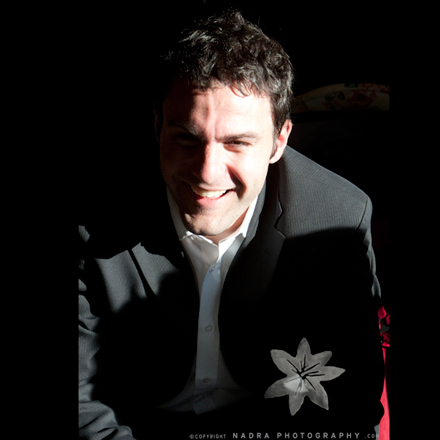 Tweet
Tweet
Featured on May 16, 2011
Andrew Cohen
"We live in the future. Advancements in neuroscience have reached new levels. Why aren't we learning things 10x faster yet?"
Bio:
Founder & CEO, Brainscape. Former e-Learning consultant, and corruption-fighter at World Bank in Panama.
- Title: Founder & CEO, Brainscape
- Age: 29
- Location: Brooklyn
- Contact: @a_s_cohen
Your experience is deeply rooted in education and cognitive technology. Do you think there's a way to apply this to entrepreneurs and tech startups? More specifically, in the NYC tech scene what are the most effective ways (e/g/ classes, panels, conferences) that new entrepreneurs can learn to avoid the startup pitfalls?
I wouldn't necessarily say that the fields of education and cognitive science are specifically applicable to a startup (unless of course it's an education startup). More accurate would be to say that the management and software skillsacquired in other fields (whether education, fashion, insurance, or whatever) are the critical competencies to transfer to the startup. If I weren't so fast at Excel, PowerPoint, contact list management, etc. from my previous experiences, then there's no way I could manage as efficiently as I like to think I do.
As for how to acquire the skills of navigating the startup world specifically, I would strongly recommend attending live or virtual panels (e.g. UltraLight Startups, the Hatchery, etc.) where common startup pitfalls are frequently discussed. Be sure to meet as many other entrepreneurs as you can while you are starting out. And most importantly, read books on whatever skills you most feel you are lacking. I would recommend "ReWork" for startup product design & management, "Made to Stick" for pitching your message, "Don't Make Me Think" for supreme website usability, and Mastering the VC Game for fundraising.
Working in 4 continents, what are some of the cultural differences that you experienced which make educational technology a challenge?
(a) The users' comfort level with technology in general. You really have to understand the inherent technical capabilities of your users, whether they are students or corporate trainees. For example, when I was working on that World Bank-financed eGovernment training initiative in Panama, we quickly realized that a large number of our trainees who were switching from paper to online-based procurement processes weren't even comfortable using a mouse!
(b) The cultural relevancy of a lesson. I once saw an example of an American-made online ABC's game that a rural Nigerian school was trying to roll out to its students. That sounds like a great idea - only when the students saw a picture of a baseball bat and had to choose what letter it started with, they didn't even know what a baseball bat was! Again, think of your users first.
Your idea for Brainscape came from something that you were doing to personally to help yourself learn languages. How did you validate your idea to the point where you felt that there was a compelling business model?
It was a multi-step epiphany:
- My initial Excel macro helped me to learn French extremely fast, and I felt like I was on to something. I also enjoyed using it.
- People started asking me to make a version of it for them, to use in other subjects beyond just languages.
- I decided that I was going to get my Masters degree in Education Technology, and focus on the cognitive science behind this method I had stumbled upon.
- Everything I kept learning in grad school continued to validate the un-filled opportunity to optimize the "memorization" part of learning. There has recently a strong backlash in Education against using any memorization in the classroom (which should be used for collaborative, project-based learning), so I realized the world needed a tool to outsource memorization and make it as convenient & efficient as possible. People also consistently seek better tools for teaching themselves subjects, whether they are studying for a standardized entrance exam, learning a language, or just acquiring random knowledge for fun.
- After developing the prototype, I ran a small focus group in which 5 people studied their national birds using Brainscape, and 5 people studied them using traditional flashcards, for a total of 30 minutes, then took a post-test. Theworst score of the Brainscape users ended up being better than the best score of the flashcard users. And that was just 30 minutes! That was the final straw. I would start a company based on this concept.
- Initially, I tried to build way too much of a product architecture before launch, which made it take too long (nearly a year!) before we would have real users on the market to give lots of feedback. This is a big mistake for any startup! Launch a minimum viable product as soon as you can - the smallest possible functionality that is even remotely useful. Don't worry that some competitor will copy you! (Unless it is an extremely revolutionary discovery or invention that justifies a long stealth mode. Your product probably isn't that revolutionary, as much as you think it is.)
People who work in startups typically work during some very unique hours. What’s your typical work schedule like for the week?
Ha! Monday through Sunday, wake-up to sleep. As founder of a startup you're always working, even when you're out with your friends or checking your Twitter feed. As far as official office hours, I'd say an average of 10am-9pm M-F, and at least one full day on a weekend. I'm currently writing this from my office (at the Varick St. Incubator) at 7:30pm on a Saturday night.